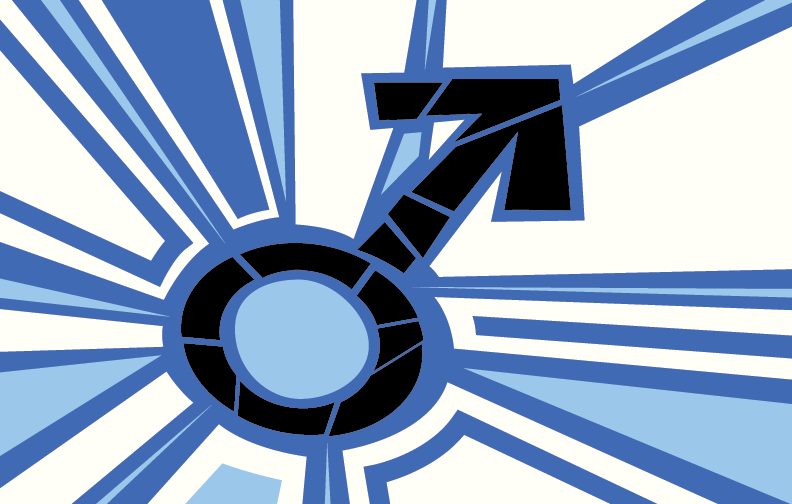What it means to be a man and the implications that correspond are questions that have always remained at the forefront of the modern culture war.
The debate has transcended decades. Each iteration providing new definitions that are rendered obsolete until the cycle repeats itself inevitably.
Traditional masculine traits include righteous interpretations in the form of courage, strength and leadership. Evidently, these traits are muddled down to their more aggressive counterparts, such as power and dominance.
At its worst, masculinity is hijacked to be defined as being everything that femininity is not. A mission that suffers from both terms being rooted in extreme vagueness.
In 2024, the two major political parties perfectly encapsulated the current state of this debate, with each candidate offering a very different answer.
In this endeavor, both parties failed to strike a balance, refusing to offer a solution that merges the alluring aspects of traditional masculinity with necessary empathy.
With men making up a large portion of the voter base, the candidate who aligns closest to how current culture has defined masculinity will continue to hold a significant advantage.
There is a war being waged on what masculinity is and who gets to benefit from it. Masculinity should not be a tool to exploit but a trait that empowers men to show up and contribute to society.
The Modern Man
The turn of the century has been marked by progress across a variety of marginalized groups.
Feminist movements have fought to bridge the gap that has tied women down for centuries. Equal marriage rights for the LGBTQ+ community have been achieved. DEI initiatives, though controversial, have assisted historically marginalized minorities in getting access to equal opportunities.
Unsurprisingly, men are entirely ignored in these movements, and it shows.
Men face the largest mental health crisis in the country. Not only has the country abandoned them, society has as well, and men are feeling more lonely than ever.
This has consequences. Men are becoming more andmore angry towards the system, desperate to return to the prophesied power they once held onto, and it’s difficult to blame them.
Boys are quickly falling behind their female counterparts in school nationwide. A reality that foreshadows how men’s role in the workforce will be positioned in the future.
Angry, ignored and lonely men are desperately searching for an outlet to release this pent-up frustration. Those who acknowledge this utilize it to their advantage.
Not to Get Political
Men’s frustration towards their circumstances has been weaponized and monetized, primarily by the conservative party.
Dubbed the “manosphere,” every aspect of a boy’s youth has been seized to radicalize them against any perceived opposition.
More often than not, that opposition tends to be anyone who isn’t also a straight white man.
Going to the gym and working out has been politicized to promote conservatism. Sports, despite previously shaming outspoken left-leaning athletes, have come to embrace conservative athletes.
Something as primitive as drinking a beer with the boys has become difficult to separate from conservatism. Influencers like the Nelk Boys, who perfectly embody everything a young boy aspires to be, often funnel them into an alt-right pipeline.
This isn’t a coincidence, nor are conservatives entirely to blame. Men have conglomerated around these groups largely in spite of the left abandoning them when they needed help the most. Men desperate for an answer about what to do with themselves were only ever given one choice in joining the conservative coalition.
That doesn’t make it any less dangerous. These values pervert traditional masculinity to be self-centered and destructive.
Placing men on a pedestal and inspiring them to take retribution against subjective positions not only hurts those around men but also men themselves.
Strike a Balance
Many people mistakenly believe that modern-day positive masculinity requires deviating from traditional male values.
These values are historically rooted in expecting men to stand up and protect the weak and marginalized. It expects men to embrace their masculinity and use it for good rather than deny it. This same masculinity has inspired men to summon the courage to put their lives on the line in times of war.
Conservatism and the masculinity it proposes perverts these ambitions. It tells men that the enemy they must fight is one weaker than them, one who is in the most desperate need of help.
Liberalism ignores men entirely on the basis that they have already gotten their chance in the spotlight. While arguably virtuous in reason, it alienates the largest and most powerful demographics.
Boys want to become men, and what it means to be a man is entirely defined by culture. If men continue to be told that a man is someone dominant, powerful and angry, they will become it.
If men are told that a certain political party represents them, they will vote for it, oftentimes against their best interest.
The future of masculinity must not be defined by anger.
The battle for what a man is and must be waged on those who seek to reform it.
Men are once again being sent to war, but it is of an entirely different nature. The burden of standing up for positive masculinity falls onto none other than men themselves.





Nick Bonsavage • Dec 3, 2024 at 5:43 pm
Sigh… yea stuff like this is why so many people voted for Trump, including myself, and not kamala. It had nothing to do with gender or masculinity. It was a nice side effect that the party/source creating this kind of noise is subdued. But again, It had absolutely nothing to do with any of this gender nonsense. And that’s why the left lost. Not going to war and being able to buy a house someday is more important than what you subjectively define as masculinity.
Bonnie Fox • Dec 3, 2024 at 4:54 pm
“Unsurprisingly, men are entirely ignored in these movements, and it shows.”
Yes! Unless you count black men as men. And Native American men as men. And Hispanic men as men. And gay men as men. And trans men as men. And all the other men rejecting the traditional definitions of men as men.
But they don’t count as men, right?
And it shows.